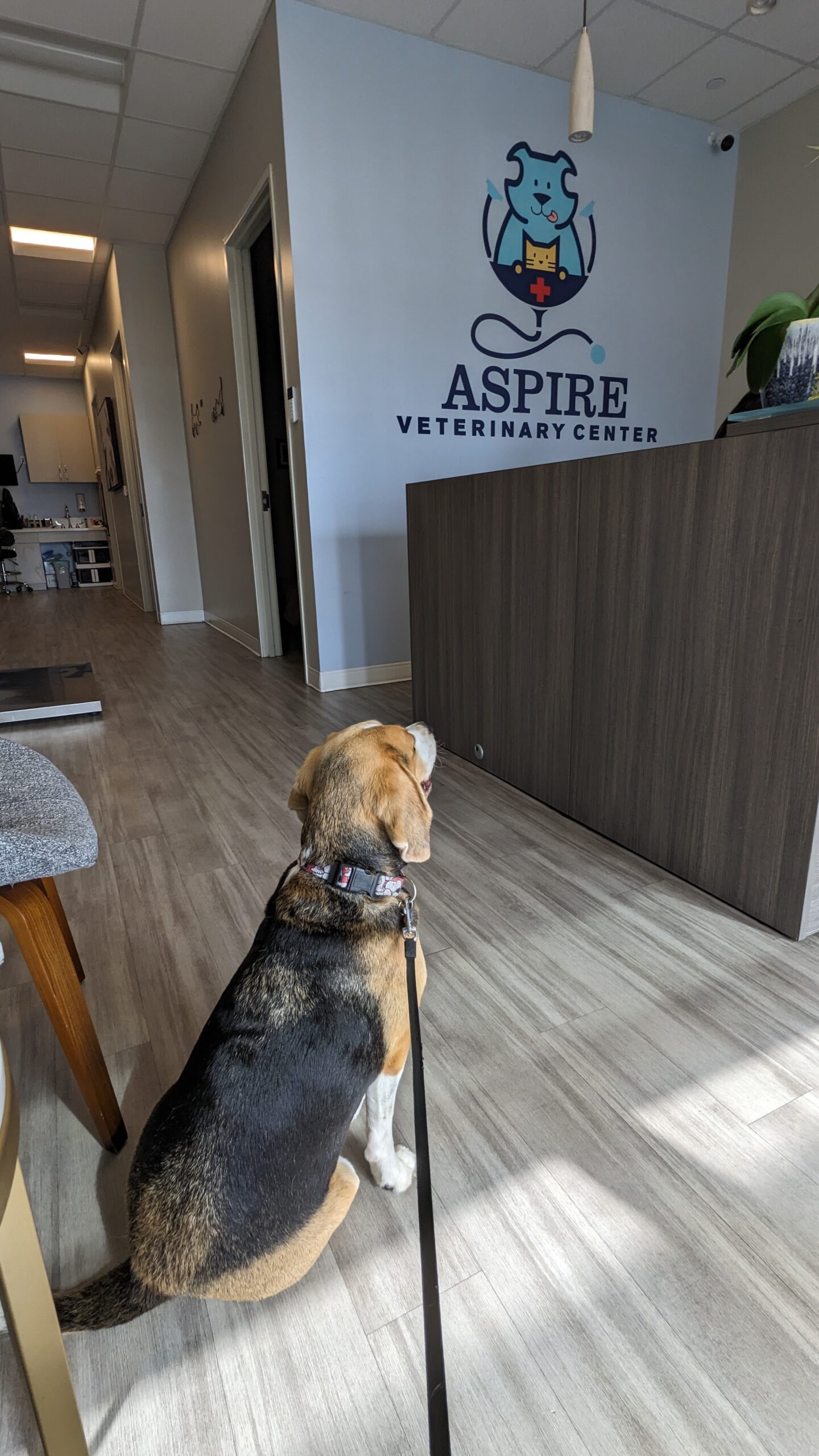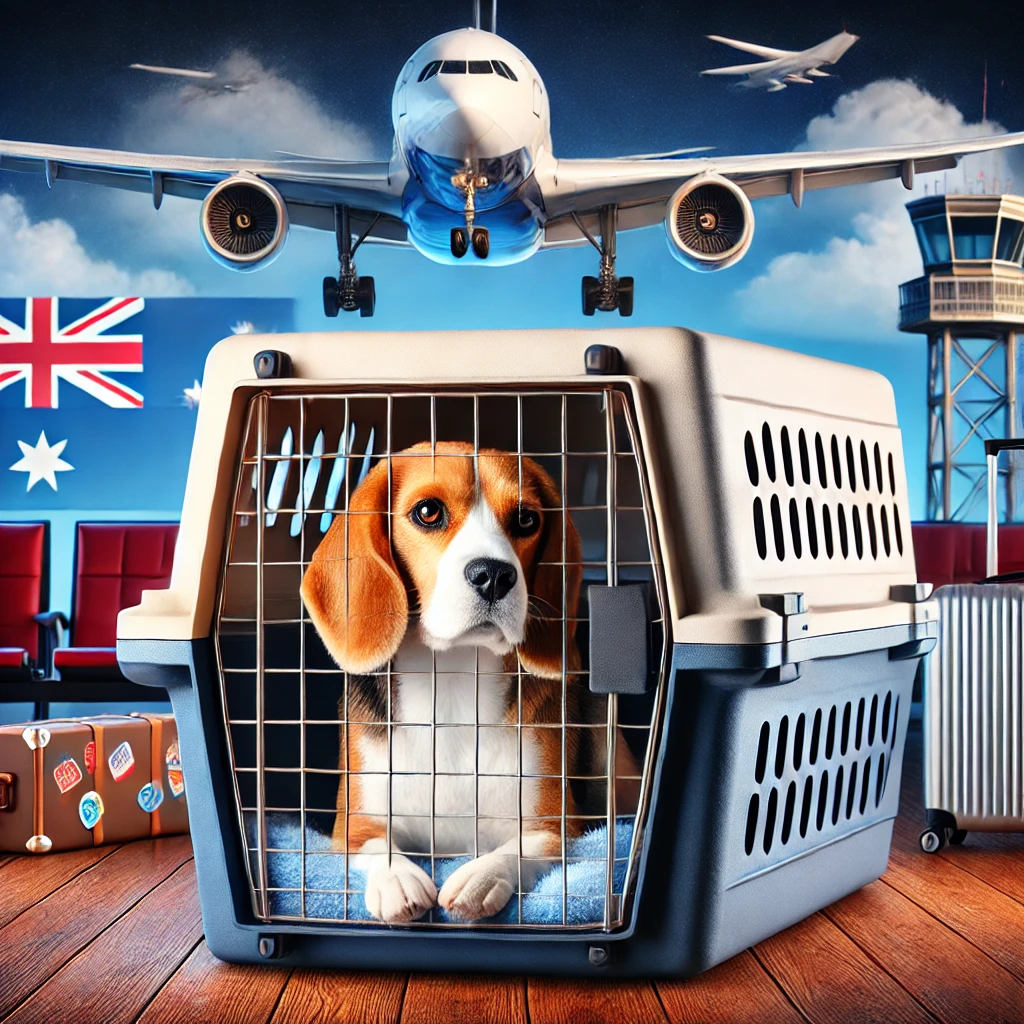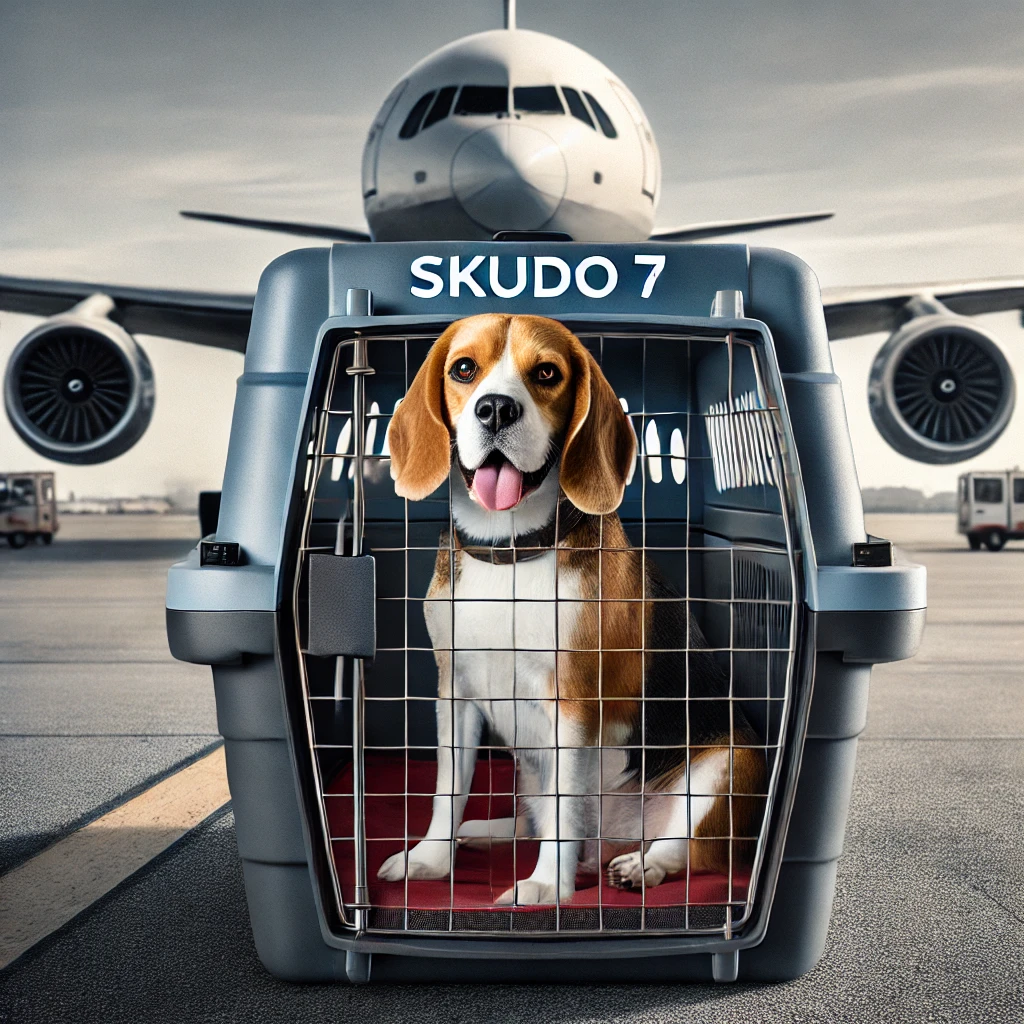As part of the preparations for exporting our beagle, Sniffy, from the United States back to Australia in November 2024, we took him to Aspire Veterinary Clinic in Orange County for his Leptospira interrogans serovar Canicola and Canine Influenza Virus (CIV) vaccines in September 2024. These vaccines are required to meet Australia’s stringent biosecurity requirements, helping protect the country’s ecosystem and preventing the transmission of diseases.

Google Maps: Aspire Veterinary Clinic in Orange County
Australian Requirements for Vaccination
When it comes to bringing pets into Australia, the country has stringent regulations in place to prevent the spread of diseases. One of the primary requirements for dogs like Sniffy is ensuring they are fully vaccinated against diseases such as rabies, leptospirosis, and canine influenza.
Leptospirosis immunity, in particular, can be demonstrated through two options: either via a blood test to confirm immunity or by completing a full vaccination course. After careful consideration, we opted to go the vaccination route rather than the blood test. This choice was made not only to minimize costs but also to ease Sniffy’s anxiety, as a single visit for vaccines tends to be less stressful than multiple visits for bloodwork.
For entry into Australia, Sniffy also needed to have a valid rabies vaccination, which has been kept up to date throughout our travels. The Leptospira interrogans serovar Canicola and CIV vaccines were critical additions to ensure all biosecurity measures were met.
Vaccine Administration and Documentation
Both vaccines, Leptospira interrogans serovar Canicola and CIV, were administered ten days apart in September 2024. Aspire Veterinary Clinic handled the process smoothly, and after our direction, we were provided with all the necessary documentation to support Sniffy’s export to Australia.
We received:
- Vaccine stickers (4) with stock numbers, which were placed in Sniffy’s Australian pet passport. These stickers serve as official proof of vaccination and are a standard procedure for documenting vaccines, especially for international travel.
- Vaccination certificates, detailing the vaccines administered, were also provided. These certificates will be included as appendices in Sniffy’s USDA health certificate. This comprehensive health certificate is required by both the USDA and Australian authorities to verify that Sniffy is in compliance with all necessary health and biosecurity regulations.
What These Vaccines Protect Against
Leptospira interrogans serovar Canicola
Leptospirosis is a bacterial infection caused by the Leptospira bacteria, which is transmitted through contaminated water, soil, or contact with infected animals. The strain Leptospira interrogans serovar Canicola is particularly significant in dogs, as it can cause severe kidney and liver damage if not treated. This disease is also zoonotic, meaning it can be transmitted from animals to humans.
Vaccinating against leptospirosis helps protect Sniffy from this potentially fatal illness and minimizes the risk of transmission, which is especially important for a country like Australia, where stringent biosecurity measures are in place to prevent the spread of foreign diseases.
Canine Influenza Virus (CIV)
Canine Influenza Virus (CIV) is a highly contagious respiratory disease that spreads rapidly among dogs, especially in high-density environments like boarding kennels, parks, or travel situations. While the symptoms can range from mild coughing to more severe respiratory distress, vaccination provides protection and reduces the risk of transmission.
For Sniffy, receiving this vaccine was a crucial part of his preparation for export, ensuring he is protected during travel and that he won’t inadvertently spread the virus to other dogs he may come into contact with.
Side Effects: Sniffy’s Experience
After the vaccines were administered, Sniffy experienced a common side effect—a small lump at the injection site. This type of reaction, often called a localized injection-site reaction, is typical and usually resolves within a few weeks. Although the lump has persisted for over a week now, it doesn’t appear to be causing Sniffy any discomfort. We’re monitoring it closely, as it’s important to keep an eye on such reactions to ensure they don’t become painful or infected.
Most side effects from these vaccines are mild, including:
- Temporary swelling or tenderness at the injection site
- Mild lethargy or reduced appetite
- Slight fever
Sniffy has shown no signs of more serious reactions, such as difficulty breathing or facial swelling, which can occur in rare cases of anaphylaxis. If Sniffy had exhibited these symptoms, immediate veterinary care would have been necessary. So far, though, he seems happy and ready for his journey home!

Documentation for Travel
As part of the export process, Sniffy’s vaccination records will be included in the USDA health certificate, which is a mandatory document for pet travel to Australia. The health certificate provides verification of all vaccinations, treatments, and health clearances, ensuring that Sniffy meets Australia’s strict import requirements.
Having received the vaccine stickers and vaccination certificate from Aspire Veterinary Clinic, we’ll be appending these to the USDA certificate to ensure Sniffy has all the proper documentation in place.
Vaccinating Sniffy with the Leptospira interrogans serovar Canicola and CIV vaccines was a necessary step to ensure his smooth transition back to Australia. With these vaccinations complete, along with all required documentation, Sniffy is on track to return home without any hiccups. While he did experience a minor side effect in the form of a lump at the injection site, it’s a small price to pay for the peace of mind that he’s protected from serious diseases.
Preparing for international pet travel can be complex, but by staying organized and ensuring that all vaccines are up to date, we’ve set Sniffy up for a safe and healthy return to Australia.
For more detailed information on the requirements for exporting pets to Australia, refer to the Australian Department of Agriculture, Fisheries and Forestry: Australian Pet Import Regulations.





